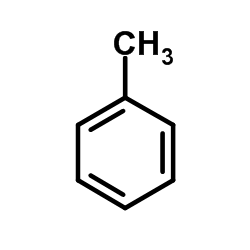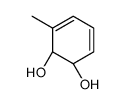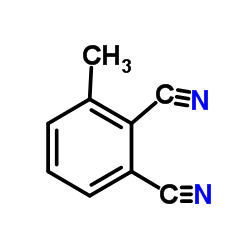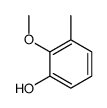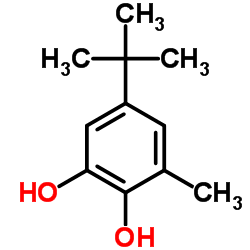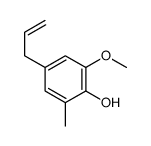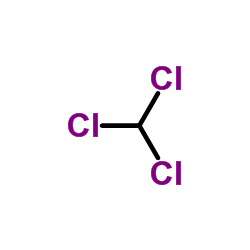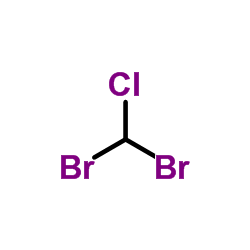This product was successfully added to cart!
品牌商品推荐
更多 >>商品详情
客户评价
| 描述 |
3-甲基邻苯二酚是恶臭假单胞菌MC2产生的化学合成中的一个组成部分[1]。 |
|---|---|
| 相关类别 |
|
| 运输 |
室温 |
| SMILES |
OC1=CC=CC(C)=C1O |
| 参考文献 |
|
| 密度 | 1.2±0.1 g/cm3 |
|---|---|
| 沸点 | 240.9±20.0 °C at 760 mmHg |
| 熔点 | 65-68?°C(lit.) |
| 分子式 | C7H8O2 |
| 分子量 | 124.137 |
| 闪点 | 116.7±16.4 °C |
| 精确质量 | 124.052429 |
| PSA | 40.46000 |
| LogP | 1.34 |
| 外观性状 | 固体;White to Light yellow powder to crystal |
| 蒸汽压 | 0.0±0.5 mmHg at 25°C |
| 折射率 | 1.595 |
| 储存条件 |
密封保存,放置在通风,干燥的环境中 |
| 稳定性 |
1. 按规格使用和贮存,不会发生分解,避免与氧化物接触。 2. 存在于烟气中。 |
| 水溶解性 | soluble |
| 分子结构 |
1、 摩尔折射率:34.84 2、 摩尔体积(cm3/mol):102.5 3、 等张比容(90.2K):274.9 4、 表面张力(dyne/cm):51.6 5、 极化率(10-24cm3):13.81 |
| 计算化学 |
1.疏水参数计算参考值(XlogP):无 2.氢键供体数量:2 3.氢键受体数量:2 4.可旋转化学键数量:0 5.互变异构体数量:19 6.拓扑分子极性表面积40.5 7.重原子数量:9 8.表面电荷:0 9.复杂度:92.9 10.同位素原子数量:0 11.确定原子立构中心数量:0 12.不确定原子立构中心数量:0 13.确定化学键立构中心数量:0 14.不确定化学键立构中心数量:0 15.共价键单元数量:1 |
| 更多 |
1. 性状:棕褐色结晶粉末 2. 密度(g/ m3,25/4℃):未确定 3. 相对蒸汽密度(g/cm3,空气=1):0.024 4. 熔点(?C):65~68 5. 沸点(?C,常压):241 6. 沸点(?C,5.2kPa):未确定 7. 折射率:未确定 8. 闪点(?C):140 9. 比旋光度(?):未确定 10. 自燃点或引燃温度(?C):未确定 11. 蒸气压(kPa,25?C):未确定 12. 饱和蒸气压(kPa,60?C):未确定 13. 燃烧热(KJ/mol):49.7 14. 临界温度(?C):未确定 15. 临界压力(KPa):未确定 16. 油水(辛醇/水)分配系数的对数值:1.34 17. 爆炸上限(%,V/V):未确定 18. 爆炸下限(%,V/V):未确定 19. 溶解性:微溶于水 |
|
3-甲基苯邻二酚毒性英文版
|
| 符号 |

GHS07 |
|---|---|
| 信号词 |
Warning |
| 危害声明 |
H315-H319-H335 |
| 警示性声明 |
P261-P305 + P351 + P338 |
| 个人防护装备 |
dust mask type N95 (US);Eyeshields;Gloves |
| 危害码 (欧洲) |
Xi |
| 风险声明 (欧洲) |
R36/37/38:Irritating to eyes, respiratory system and skin . |
| 安全声明 (欧洲) |
S26-S37/39 |
| 危险品运输编码 | 2811 |
| WGK德国 | 3 |
| RTECS号 | UX1910000 |
| 包装等级 | III |
| 危险类别 | 6.1(b) |
| 海关编码 | 2907299090 |
| 海关编码 | 2907299090 |
|---|---|
| 中文概述 | 2907299090 其他多元酚,酚醇。监管条件:AB(入境货物通关单,出境货物通关单)。增值税率:17.0%。退税率:9.0%。最惠国关税:5.5%。普通关税:30.0% |
| 申报要素 | 品名, 成分含量, 用途 |
| 监管条件 | A.入境货物通关单 B.出境货物通关单 |
| 检验检疫 | R.进口食品卫生监督检验 S.出口食品卫生监督检验 M.进口商品检验 N.出口商品检验 |
| Summary | 2907299090 polyphenols; phenol-alcohols。supervision conditions:AB(certificate of inspection for goods inward,certificate of inspection for goods outward)。VAT:17.0%。tax rebate rate:9.0%。MFN tariff:5.5%。general tariff:30.0% |
|
Effects of plant species, stage of maturity, and level of formic acid addition on lipolysis, lipid content, and fatty acid composition during ensiling. J. Anim. Sci. 93 , 4408-23, (2015)
Forage type and management influences the nutritional quality and fatty acid composition of ruminant milk. Replacing grass silage with red clover (RC; L.) silage increases milk fat 18:3-3 concentratio…
|
|
|
Characterization of catechol 2,3-dioxygenase from Planococcus sp. strain S5 induced by high phenol concentration. Acta Biochim. Pol. 59(3) , 345-51, (2012)
This study aimed at characterization of a new catechol 2,3-dioxygenase isolated from a Gram-positive bacterium able to utilize phenol as the sole carbon and energy source. Planococcus sp. strain S5 gr…
|
|
|
Electrochemical synthesis of novel 1,3-indandione derivatives and evaluation of their antiplatelet aggregation activities. Iran. J. Pharm. Res. 12 , 91-103, (2013)
Electrochemical oxidation of some selected catechol derivatives, using cyclic voltammetry, in the presence of different 2-aryl-1,3-indandiones as nucleophiles, resulted in electrochemical synthesis of…
|
|
|
3-METHYL CATECHOL |
|
3-methyl-pyrocatecho |
|
1,2-Dihydroxy-3-methylbenzene |
|
2,3-Toluenediol |
|
1,2-Benzenediol, 3-methyl- |
|
Dihydroxytoluene |
|
MFCD00016435 |
|
3-Methylcatechol |
|
3-Methylpyrocatechol |
|
2,3-Dihydroxytoluene |
|
3-Methylbenzol-1,2-diol |
|
METHYLCATECHOL,3 |
|
EINECS 207-672-6 |
|
Catechol,3-methyl |
|
3-methylbenzene-1,2-diol |
|
2,3-Toluenediol-d3 |
|
3-Methyl-1,2-benzenediol |
|
3-METHYL-BENZENE-1,2-DIOL |











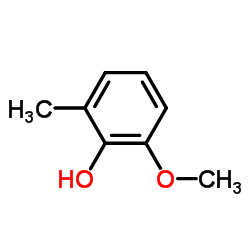
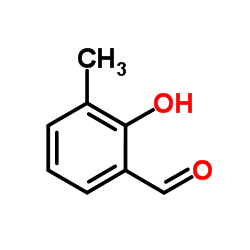
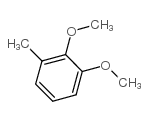
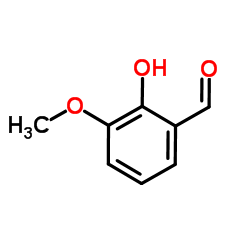
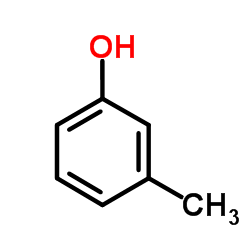
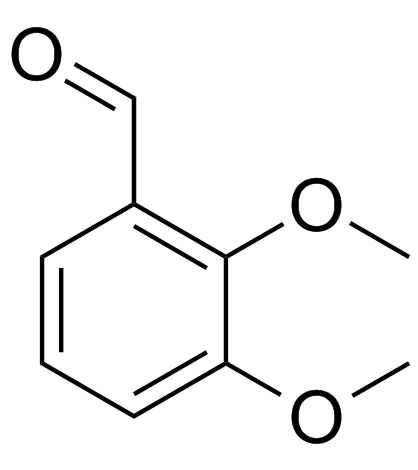
![6-methyl-3,4-dihydro-2H-benzo[b]1,4-dioxepine结构式](https://www.chemsrc.com/caspic/471/33632-36-9.png)
